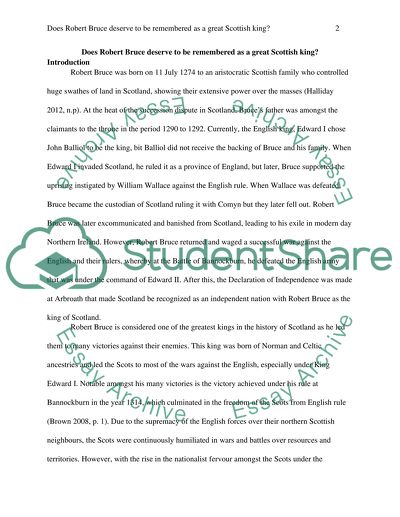Cite this document
(“Does Robert Bruce deserve to be remembered as a great Scottish king Essay - 3”, n.d.)
Does Robert Bruce deserve to be remembered as a great Scottish king Essay - 3. Retrieved from https://studentshare.org/history/1697275-does-robert-bruce-deserve-to-be-remembered-as-a-great-scottish-king
Does Robert Bruce deserve to be remembered as a great Scottish king Essay - 3. Retrieved from https://studentshare.org/history/1697275-does-robert-bruce-deserve-to-be-remembered-as-a-great-scottish-king
(Does Robert Bruce Deserve to Be Remembered As a Great Scottish King Essay - 3)
Does Robert Bruce Deserve to Be Remembered As a Great Scottish King Essay - 3. https://studentshare.org/history/1697275-does-robert-bruce-deserve-to-be-remembered-as-a-great-scottish-king.
Does Robert Bruce Deserve to Be Remembered As a Great Scottish King Essay - 3. https://studentshare.org/history/1697275-does-robert-bruce-deserve-to-be-remembered-as-a-great-scottish-king.
“Does Robert Bruce Deserve to Be Remembered As a Great Scottish King Essay - 3”, n.d. https://studentshare.org/history/1697275-does-robert-bruce-deserve-to-be-remembered-as-a-great-scottish-king.


